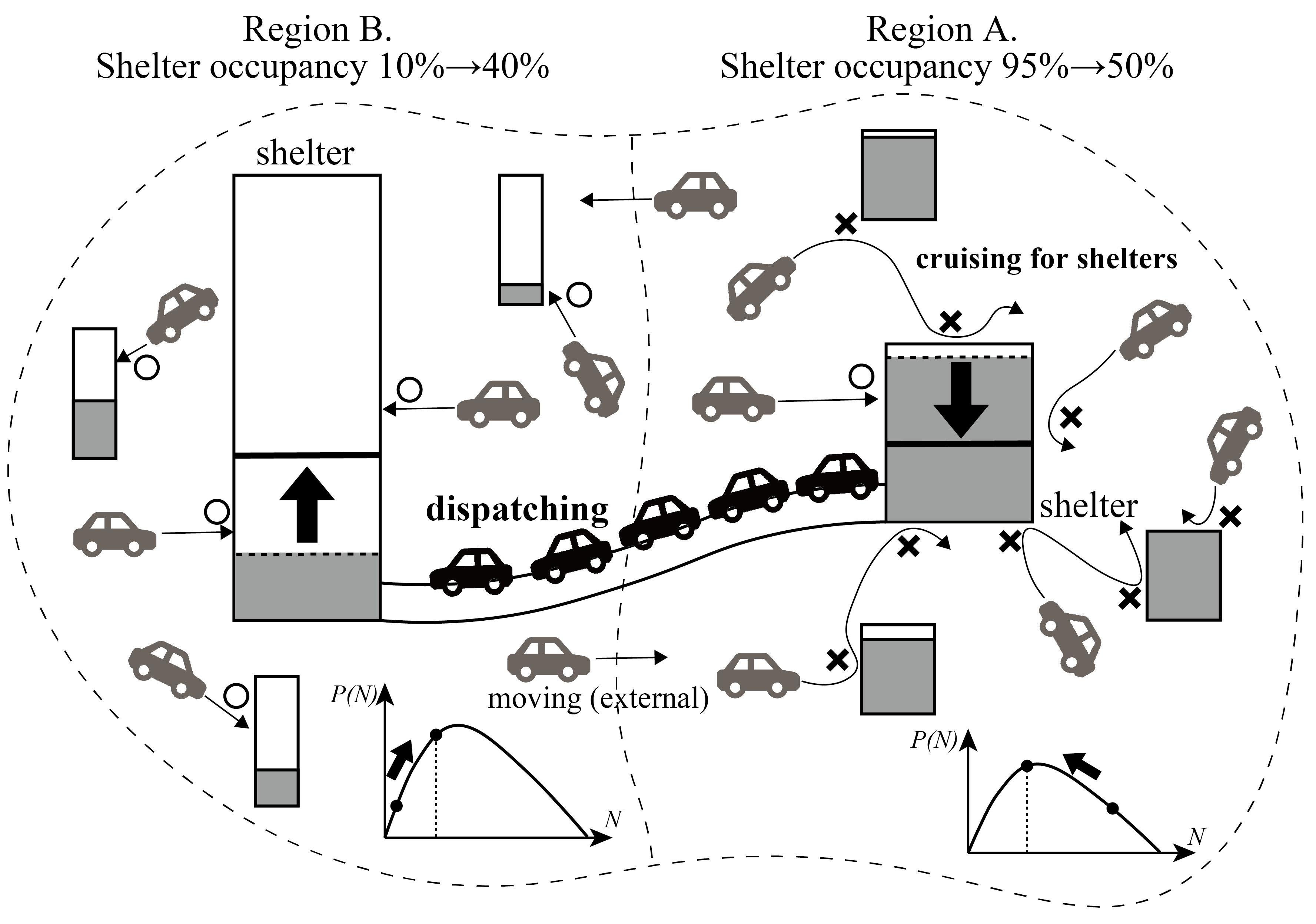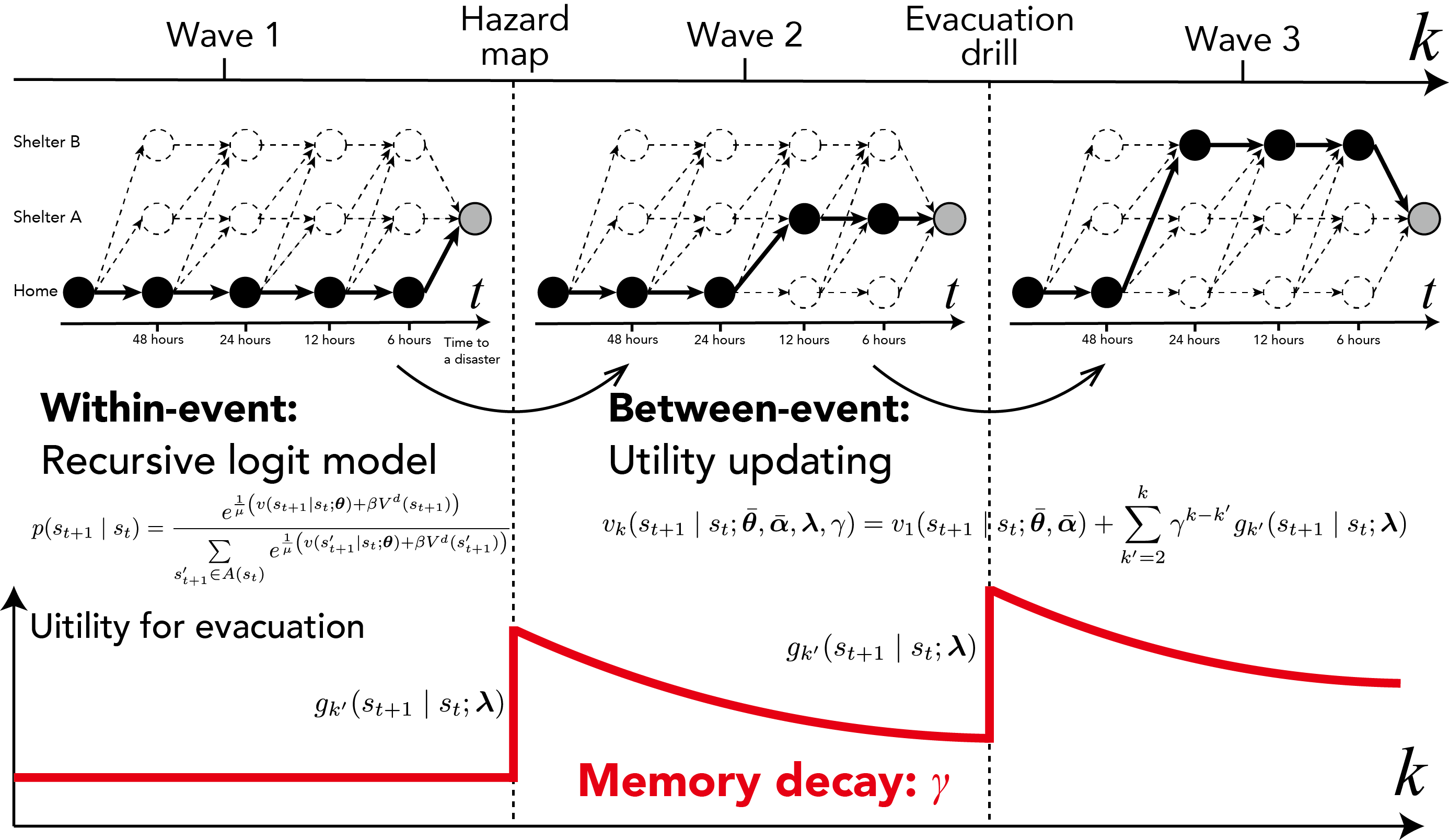Research
1. Emergency Transportation Planning Using Macroscopic Traffic Models
I am interested in planning evacuation traffic during disasters by combining macroscopic traffic models and control theory. With the increasing frequency and intensity of climate-related disasters worldwide, catastrophic events like large-scale floods and tsunamis can severely disrupt society. The sudden, large demand for evacuation traffic, which differs significantly from regular traffic, can cause severe transportation issues such as gridlock.
So, what can we do? My research addresses this problem through both long-term offline planning and real-time online traffic control.

2. Learning, Unlearning, and Relearning of Behavior
Planning based on demand is not sufficient. How can we change people’s behavior itself? I am exploring the effects of behavioral learning through experimental approaches. Using this data, I aim to clarify the mechanisms of learning and forgetting in travel behavior using discrete choice models.

3. Mechanism Design for Multi-Player Interactions
Planners (the supply side) develop transportation plans based on people’s behavior, while individuals (the demand side) learn, unlearn, and relearn their behavior through the planner's interventions. There is an interaction at play!
I consider multiple players in a region, each affecting one another’s behavior, and design mechanisms that lead to socially optimal outcomes even if each player acts selfishly. These interactions are described by game theory, and I especially enjoy analyzing the dynamics of these games.
